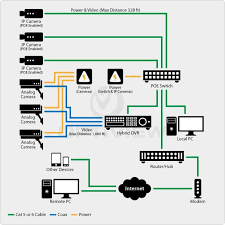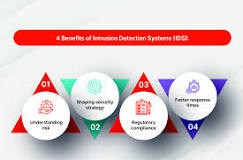A DVR camera system, short for Digital Video Recorder camera system, is a sophisticated surveillance solution that combines the functionality of a digital video recorder with one or more cameras to capture and record video footage. These systems are commonly used in both residential and commercial settings to enhance security and monitor activities in real-time.
One of the key advantages of a DVR camera system is its ability to store video footage digitally. This means that users can easily access and review recorded footage at any time, making it an invaluable tool for investigating incidents or monitoring ongoing activities. Additionally, many DVR camera systems offer features such as motion detection and remote viewing capabilities, allowing users to receive alerts and access live feeds from their cameras on their smartphones or computers.
When it comes to installation, DVR camera systems are relatively easy to set up compared to traditional analog surveillance systems. Most modern DVR systems use IP (Internet Protocol) cameras, which transmit video data over a network connection. This not only simplifies the installation process but also allows for greater flexibility in terms of camera placement and scalability.
In terms of security, DVR camera systems offer a reliable way to deter potential intruders and protect property. The presence of visible cameras can act as a deterrent against criminal activity, while the ability to record high-quality video footage provides valuable evidence in the event of a security breach or incident.
Overall, a DVR camera system is an effective and versatile security solution that offers peace of mind for homeowners, business owners, and property managers alike. With features such as remote monitoring, motion detection, and digital storage capabilities, these systems provide comprehensive surveillance coverage and help ensure the safety and security of any premises.
Everything You Need to Know About DVR Camera Systems: FAQs Answered
- What is a DVR camera system?
- How does a DVR camera system work?
- What are the benefits of using a DVR camera system?
- Are DVR camera systems easy to install?
- Can I access my DVR camera system remotely?
- What types of features should I look for in a DVR Camera System?
- How long can a typical DVR Camera System store recorded footage?
- Do I need professional installation for setting up a DVR Camera System?
What is a DVR camera system?
A DVR camera system, or Digital Video Recorder camera system, is a comprehensive surveillance solution that combines the functionality of a digital video recorder with one or more cameras to capture and record video footage. This integrated system is commonly used in both residential and commercial settings to enhance security and monitor activities in real-time. The DVR component of the system allows users to store video footage digitally, enabling easy access and review of recorded material at any time. With features such as motion detection and remote viewing capabilities, a DVR camera system provides users with alerts and live feeds from their cameras on various devices like smartphones or computers. Overall, a DVR camera system offers a reliable and efficient way to safeguard properties, deter intruders, and provide valuable evidence in the event of security incidents.
How does a DVR camera system work?
Understanding how a DVR camera system works is essential for maximizing its security benefits. In simple terms, a DVR camera system consists of one or more cameras that capture video footage and transmit it to a digital video recorder (DVR) for storage and monitoring. The cameras are connected to the DVR either through wired or wireless connections, depending on the system’s configuration. The DVR then processes and compresses the video data before storing it on a hard drive for future playback or review. Users can access the recorded footage remotely through a computer, smartphone, or monitor connected to the DVR. Additionally, many DVR camera systems come equipped with features like motion detection, night vision, and remote viewing capabilities to enhance surveillance efficiency and effectiveness.
What are the benefits of using a DVR camera system?
There are several benefits of using a DVR camera system for surveillance and security purposes. One of the key advantages is the ability to digitally record and store video footage, allowing users to review past events and incidents with ease. Additionally, DVR camera systems often come equipped with features such as motion detection, remote viewing capabilities, and real-time alerts, enhancing the overall monitoring experience. These systems also act as a deterrent against potential intruders and provide valuable evidence in case of theft, vandalism, or other security breaches. With easy installation and scalability options, DVR camera systems offer a reliable and effective solution for enhancing security measures in both residential and commercial settings.
Are DVR camera systems easy to install?
Installing DVR camera systems is generally considered to be relatively straightforward and user-friendly, especially compared to traditional analog surveillance systems. Most modern DVR camera systems utilize IP (Internet Protocol) cameras that can be easily connected to the network, simplifying the installation process. Additionally, many DVR systems come with user-friendly interfaces and setup wizards that guide users through the installation steps. With the right tools and basic technical knowledge, setting up a DVR camera system can be a manageable task for both homeowners and business owners looking to enhance their security measures.
Can I access my DVR camera system remotely?
Yes, you can access your DVR camera system remotely. One of the key features of modern DVR camera systems is the ability to remotely access live video feeds and recorded footage from anywhere with an internet connection. By using a smartphone, tablet, or computer, users can log into the system’s interface or dedicated mobile app to view real-time video streams, playback recorded footage, and even receive alerts or notifications based on motion detection or other triggers. This remote access capability provides users with convenience, flexibility, and peace of mind knowing that they can monitor their property or premises at any time, from anywhere.
What types of features should I look for in a DVR Camera System?
When considering a DVR camera system, it is essential to look for certain key features to ensure optimal performance and functionality. Firstly, the resolution of the cameras is crucial for capturing clear and detailed footage, so opting for high-definition (HD) or even 4K cameras can significantly enhance video quality. Additionally, features like night vision capability are important for round-the-clock surveillance in low-light conditions. Motion detection technology can help trigger alerts and recording when movement is detected, improving efficiency and reducing storage space usage. Remote viewing capabilities allow users to access live feeds and recorded footage from anywhere using a smartphone or computer, providing added convenience and peace of mind. Lastly, consider a system with ample storage capacity to accommodate your recording needs without frequent data deletion.
How long can a typical DVR Camera System store recorded footage?
One of the frequently asked questions about DVR camera systems is regarding the storage capacity and duration of recorded footage. The storage capacity of a typical DVR camera system can vary based on factors such as the number of cameras, video resolution, compression settings, and hard drive size. Generally, a standard DVR system with multiple cameras and a moderate recording quality can store footage for several days to weeks before needing to overwrite older recordings. However, users can also expand the storage capacity by adding external hard drives or utilizing cloud storage options for longer retention periods.
Do I need professional installation for setting up a DVR Camera System?
Setting up a DVR camera system does not always require professional installation, as many systems are designed for easy DIY setup. Most modern DVR camera systems come with user-friendly instructions and intuitive interfaces that make it possible for users to install and configure the system themselves. However, professional installation may be recommended for those who are unfamiliar with technology or prefer to have the system set up by experts to ensure optimal performance and functionality. Ultimately, the decision to opt for professional installation depends on individual comfort levels with technology and the complexity of the DVR camera system being installed.



